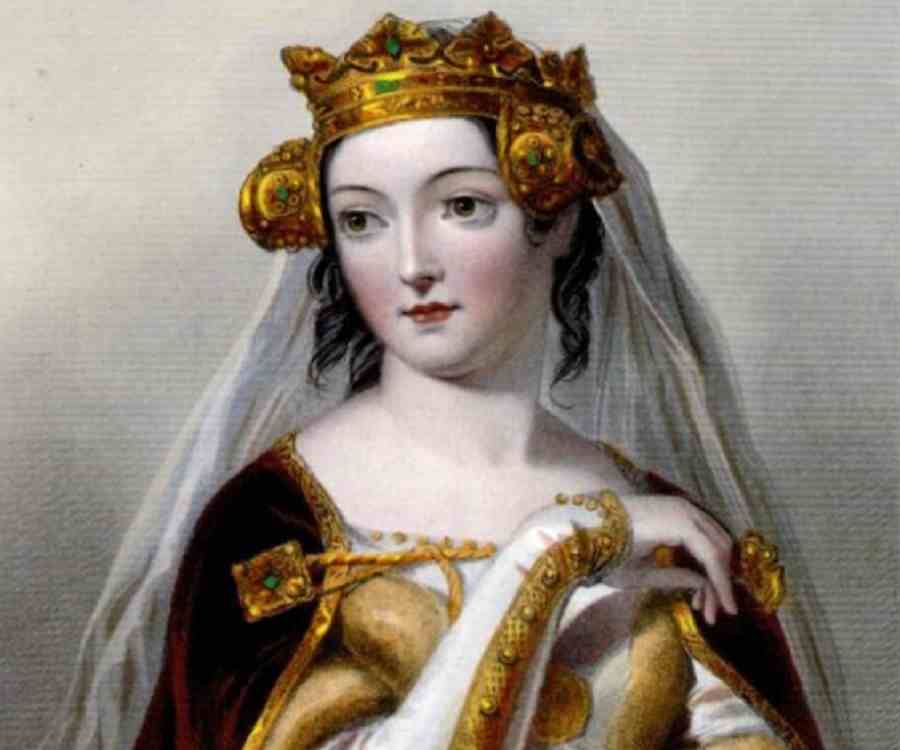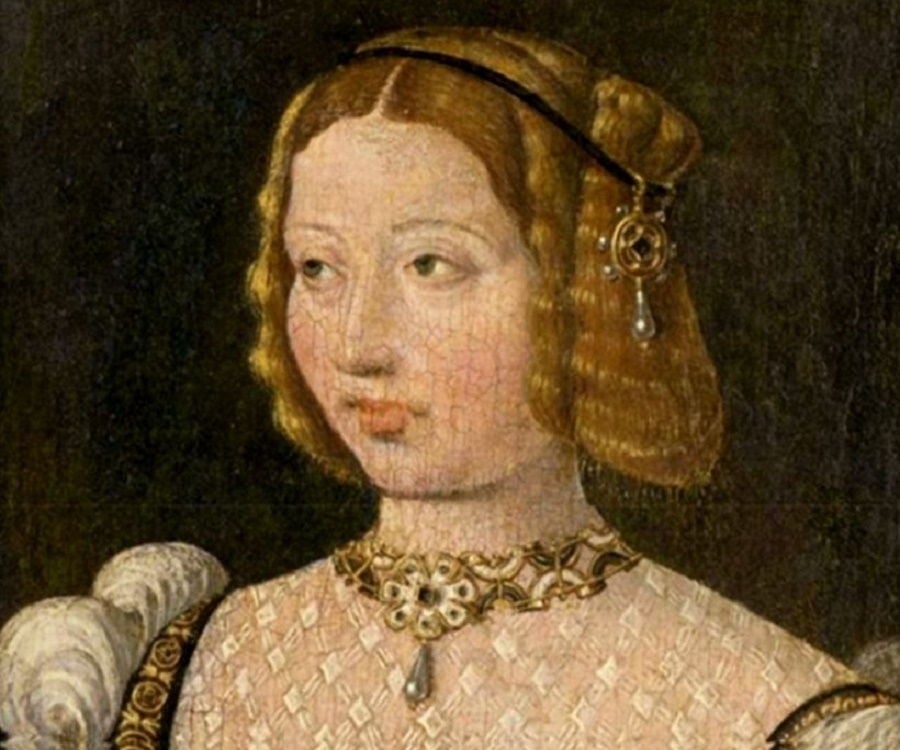Isabella I Of Castile: Unifying Spain And Shaping History
The annals of history are replete with figures whose reigns irrevocably altered the course of nations, and among them, few shine as brightly or as controversially as Isabella I of Castile. Her life, a testament to unwavering resolve and profound ambition, saw the fragmented kingdoms of the Iberian Peninsula coalesce into a unified Spain, setting the stage for an empire that would span continents. From sponsoring the groundbreaking voyages of Christopher Columbus to establishing the formidable Spanish Inquisition, Isabella's legacy is a complex tapestry woven with threads of innovation, faith, and undeniable power.
Born into a tumultuous era of political instability and dynastic rivalries, Isabella's journey from a relatively obscure princess to a queen of immense influence was anything but straightforward. Her reign, alongside her husband Ferdinand II of Aragon, is often heralded as a pivotal turning point, marking the dawn of Spain's Golden Age. This article delves into the remarkable life and enduring achievements of Isabella I of Castile, exploring how she defied expectations, navigated treacherous political waters, and ultimately left an indelible mark on the world.
Table of Contents
- The Formative Years: Isabella's Early Life and Upbringing
- The Unlikely Path to the Throne: How Isabella Became Queen
- A Strategic Alliance: The Marriage of Isabella and Ferdinand
- Personal Data and Biodata of Queen Isabella I of Castile
- The Reign of Isabella I of Castile: A Turning Point for Spain
- Isabella the Catholic: Virtue, Faith, and Legacy
- Enduring Impact and Historical Significance
- Conclusion
The Formative Years: Isabella's Early Life and Upbringing
Isabella's story begins on April 22, 1451, a Maundy Thursday, in the quiet town of Madrigal de las Altas Torres. She was born to King John II of Castile and his second wife, Isabella of Portugal. At the time of her birth, her half-brother, Henry, who would later become King Henry IV, was 26 years old, married, but notably childless. This detail, seemingly minor at the time, would prove to be a significant undercurrent in the dynastic struggles that defined Isabella's early life and eventual ascent. Isabella was initially raised by her mother, away from the bustling and often treacherous royal court. This period of relative seclusion lasted until 1457. However, the political landscape of Castile was fraught with tension, with powerful nobles constantly vying for influence and challenging the king's authority. Recognizing the potential for Isabella and her younger brother, Alfonso, to be used as pawns by opposition nobles, Henry IV wisely brought the two children to court. This move, intended to keep them under his watchful eye and prevent their manipulation, inadvertently exposed Isabella to the intricacies of court politics and the precarious nature of royal power from a young age. This early exposure, though perhaps unsettling, undoubtedly contributed to the sharp political acumen she would later demonstrate as Queen Isabella I of Castile.The Unlikely Path to the Throne: How Isabella Became Queen
When King John II died in 1454, Isabella's half-brother ascended to the throne as Henry IV of Castile. Despite his efforts to consolidate power, Henry's reign was plagued by a persistent lack of a male heir and the growing discontent of the Castilian nobility. The political instability escalated dramatically in the 1460s when a powerful faction of nobles openly denounced Henry as a tyrant and declared his younger brother, Alfonso, the rightful ruler. This period, known as the War of the Castilian Succession, plunged the kingdom into civil strife. Isabella, caught in the midst of this turbulent period, navigated these treacherous waters with remarkable skill. Despite the immense pressure on the king from the rebellious nobles, Isabella shrewdly avoided being imprisoned, a testament to her growing influence and the support she was quietly garnering. The sudden death of Alfonso in 1468, at the age of just 14, left Isabella as the natural heir to the throne, a position she had arguably never sought but was now compelled to embrace. Henry IV, desperate to stabilize his kingdom, eventually recognized Isabella as his successor through the Treaty of Toros de Guisando in 1468, though this agreement was later contested. When Henry IV died in 1474, Isabella wasted no time. On December 11, 1474, she was proclaimed Queen of Castile and León, a bold move that solidified her claim and ignited another period of conflict, the War of the Castilian Succession, against the supporters of Juana la Beltraneja, Henry IV's alleged daughter. Through cunning strategy and the burgeoning support of key nobles, Isabella I of Castile ultimately secured her position, paving the way for her transformative reign.A Strategic Alliance: The Marriage of Isabella and Ferdinand
Perhaps one of the most pivotal decisions in Isabella's life, and indeed in the history of Spain, was her marriage to Ferdinand II of Aragon. This union was not one of convenience or simple affection, but a carefully calculated strategic alliance. Isabella married Ferdinand against her brother's will, a clear demonstration of her independent spirit and foresight. This act of defiance underscored her determination to forge a powerful alliance that would transcend the traditional rivalries between the Iberian kingdoms. The marriage, which took place in Valladolid in 1469, laid the groundwork for the future unification of Spain. Together, Isabel and Fernando, as they were known, continued to gain the support of the nobles, gradually consolidating their power and influence across Castile and Aragon. Their personal union was a powerful symbol, promising an end to centuries of internal conflict and setting the stage for a new, unified political entity. The birth of their first daughter, Isabella, in 1470, further cemented their alliance and provided an heir to their burgeoning power. This dynastic marriage was not merely a personal event but the very foundation upon which Queen Isabella I of Castile and her husband, Ferdinand V (as he was known in Castile), would build the modern Spanish state, transforming a collection of disparate kingdoms into a formidable European power.Personal Data and Biodata of Queen Isabella I of Castile
To truly appreciate the magnitude of her achievements, it's helpful to review the key biographical details of this extraordinary monarch. Isabella I of Castile, also known as Isabel the Catholic (Spanish: Isabel la Católica), left an indelible mark on history through her decisive actions and unwavering vision.| Full Name | Isabella I of Castile (Isabel la Católica) |
| Born | April 22, 1451, Madrigal de las Altas Torres |
| Died | November 26, 1504 |
| Parents | King John II of Castile and Isabella of Portugal |
| Spouse | Ferdinand II of Aragon (Ferdinand V of Castile) |
| Reign | December 11, 1474 – November 26, 1504 |
| Titles Held | Queen of Castile, León, and Aragon |
| Key Achievements/Known For | Unifying Spain, sponsoring Christopher Columbus's voyages, the Reconquista (conquest of Granada), establishment of the Spanish Inquisition, expulsion of Jews and Moors, centralizing state power, regulating crime. |
| Religious Affiliation | Strict Catholic, noted for her 'virtue and fear of God'. |
The Reign of Isabella I of Castile: A Turning Point for Spain
The reign of Isabella I of Castile is often seen as a turning point in the history of Spain, a period of profound transformation that laid the groundwork for its future global dominance. Her achievements in unifying the kingdom, expanding its territories, and establishing a centralized state were remarkable and set the stage for Spain’s Golden Age.Unifying the Kingdoms and Centralizing Power
One of the most significant accomplishments of Isabella and Ferdinand was the effective unification of Spain. While their marriage created a personal union of the crowns of Castile and Aragon, they worked tirelessly to integrate their respective kingdoms, laying the administrative and legal foundations for a single, powerful state. This process involved not only diplomatic skill but also a firm hand in governance. Isabella took strict measures in regulating crime, bringing its rate to the lowest it had been in years. The couple established a centrally organized and efficient Holy Hermandad (Santa Hermandad) for Castile, León, and Asturias in 1476 and gave it great powers to regulate crime. This innovative policing force was instrumental in restoring order and establishing royal authority throughout the realm, a critical step in centralizing power under the crown.The Reconquista: Conquering Granada
For centuries, the Iberian Peninsula had been characterized by the ongoing struggle between Christian kingdoms and the Moorish presence in the south. The final chapter of this centuries-long conflict, known as the Reconquista, was brought to a decisive close under the reign of Isabella I of Castile. She and Ferdinand dedicated immense resources and personal commitment to the war against the Emirate of Granada, the last Muslim stronghold in Spain. The culmination of this effort came in 1492, with the fall of Granada. This victory was not merely a military triumph; it was a profound symbolic moment, signifying the complete Christian reconquest of Spain and reinforcing the concept of a unified, Catholic nation.Sponsoring Exploration: Christopher Columbus's Voyages
Perhaps the most globally impactful decision of Isabella's reign was her sponsorship of Christopher Columbus's voyage. Despite initial skepticism and numerous rejections, Columbus eventually gained the ear of Queen Isabella I of Castile. Driven by a desire to find a new trade route to Asia and a fervent belief in the potential for spreading Christianity, Isabella provided the crucial financial and political backing for Columbus's audacious journey. In 1492, Columbus set sail, ultimately reaching the Americas (specifically the Caribbean), a discovery that would fundamentally alter world history. This act of patronage launched the Age of Exploration, leading to the establishment of the vast Spanish Empire and the profound cultural and economic exchange between the Old and New Worlds.Religious Uniformity: The Spanish Inquisition and Expulsions
Isabella's deep religious convictions were a defining characteristic of her rule. As a strict Catholic, she was, amongst contemporaries, noted for her ‘virtue and fear of God’. This devoutness, however, also led to some of the most controversial aspects of her reign. To ensure religious uniformity within her newly unified kingdom, Isabella, along with Ferdinand, established the Spanish Inquisition in 1478. This powerful ecclesiastical tribunal was designed to identify and punish heresy, particularly among conversos (Jews who had converted to Christianity) and later, moriscos (Muslims who had converted). Further cementing her commitment to a purely Catholic Spain, Isabella issued the Alhambra Decree in 1492, which ordered the expulsion of all Jews from Castile and Aragon. This was followed by similar decrees targeting Muslims. These expulsions, while consolidating religious unity, led to immense human suffering and a significant loss of intellectual and economic talent for Spain. While seen by some as a necessary step for national cohesion at the time, these policies remain a stark reminder of the often-harsh realities of religious intolerance in history.Isabella the Catholic: Virtue, Faith, and Legacy
The title "Isabella the Catholic" (Isabel la Católica) was bestowed upon her by Pope Alexander VI in 1494, a testament to her unwavering devotion to the Catholic Church and her pivotal role in its defense and expansion. Beyond her political and military achievements, Isabella was renowned for her personal piety. Contemporaries frequently remarked on her 'virtue and fear of God,' traits that deeply influenced her governance. She was known for her austerity, her commitment to justice, and her belief in the divine right of her rule. Her faith was not merely a personal conviction; it was a guiding principle for her policies, influencing everything from the Reconquista to the establishment of the Inquisition. This deep-seated belief in a unified, Catholic Spain drove her most significant decisions, shaping the identity of the nascent nation. While her religious zeal led to actions that are viewed critically today, such as the expulsions, it was also the source of her immense strength and resolve, enabling her to pursue her vision for Spain with an almost unshakeable determination. Isabella's legacy as "the Catholic" is thus inseparable from her role as a queen, intertwining her personal faith with the destiny of her kingdom.Enduring Impact and Historical Significance
Isabella I of Castile's reign fundamentally reshaped Spain and left an indelible mark on global history. Her achievements in unifying the kingdom, expanding its territories, and establishing a centralized state were remarkable. She and Ferdinand founded the modern Spanish state, creating a powerful political entity that would dominate European affairs for centuries. The success of the Reconquista brought an end to centuries of internal conflict and solidified a national identity. The sponsorship of Christopher Columbus's voyages opened up the New World, leading to the vast Spanish Empire and initiating a period of unprecedented global exploration and exchange. However, her legacy is also one of complexity and controversy. The Spanish Inquisition and the expulsion of Jews and Moors are dark chapters, highlighting the severe consequences of religious intolerance. Yet, even these actions, from her perspective, were aimed at strengthening the unified, Catholic kingdom she envisioned. Her influence was so profound that even in the late 19th century, at the World's Columbian Exposition in Chicago in 1893, Isabella's contributions were highlighted in the Woman's Building, featuring portraits, biographies, and addresses celebrating her pivotal role in history, particularly in relation to Columbus's discovery. Her reign, a blend of visionary leadership, shrewd political maneuvering, and uncompromising faith, set Spain on a trajectory that would define its Golden Age and its role as a global power.Conclusion
Isabella I of Castile stands as one of history's most formidable and influential monarchs. Born into a fragmented kingdom, she rose against formidable odds to forge a unified Spain alongside her husband, Ferdinand II of Aragon. Her reign was a period of intense transformation, marked by the triumph of the Reconquista, the dawn of global exploration with Columbus's voyages, and the controversial establishment of the Spanish Inquisition. She was a queen of immense conviction, whose 'virtue and fear of God' shaped not only her personal life but also the very fabric of the nation she helped create. While her policies, particularly those driven by religious zeal, continue to be debated and scrutinized, there is no denying the profound and lasting impact of Isabella I of Castile on Spain and the world. Her vision for a centralized, powerful, and religiously unified kingdom laid the essential groundwork for Spain's rise as a dominant force in the early modern era. Her story is a compelling testament to the power of leadership, the complexities of faith, and the enduring legacy of a queen who truly shaped history. What aspects of Isabella's reign do you find most compelling? Share your thoughts in the comments below! If you found this article insightful, consider sharing it with others or exploring more of our historical deep-dives.
Isabella is the most powerful, with the most frightening power. : Encanto

Isabella Of France Biography - Facts, Childhood, Family Life & Achievements

Isabella Of Portugal Biography - Facts, Childhood, Family Life